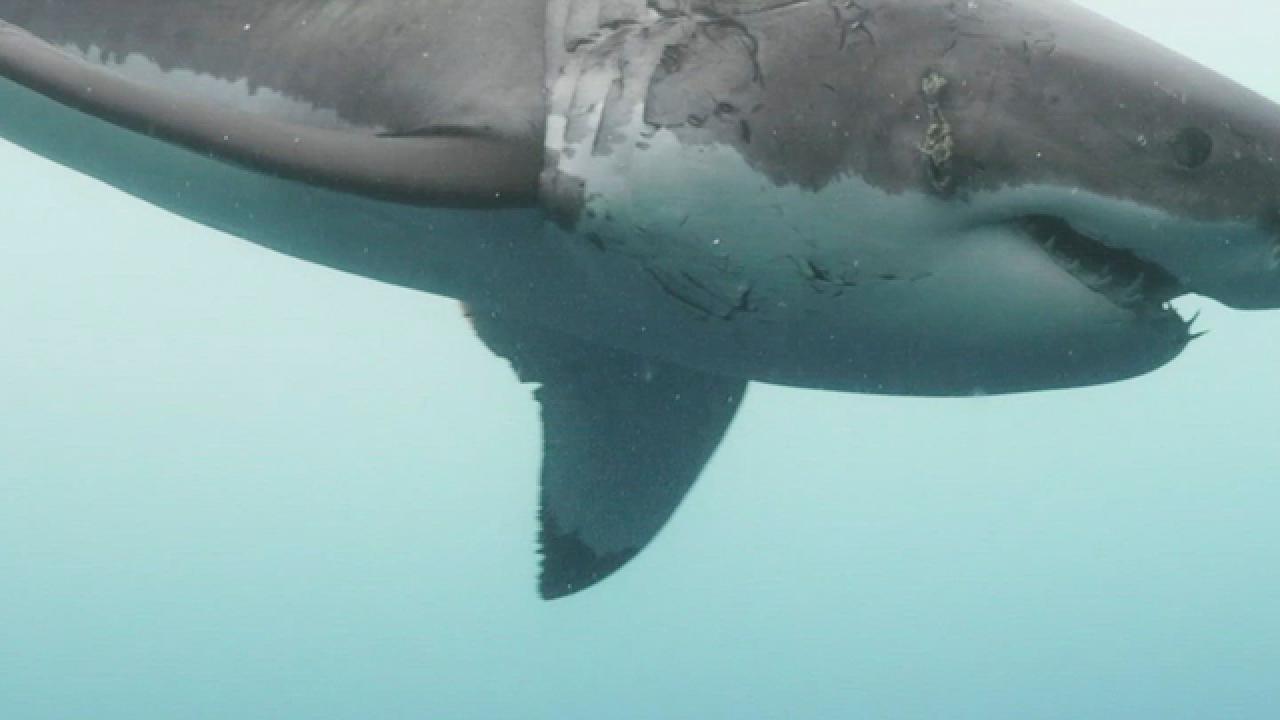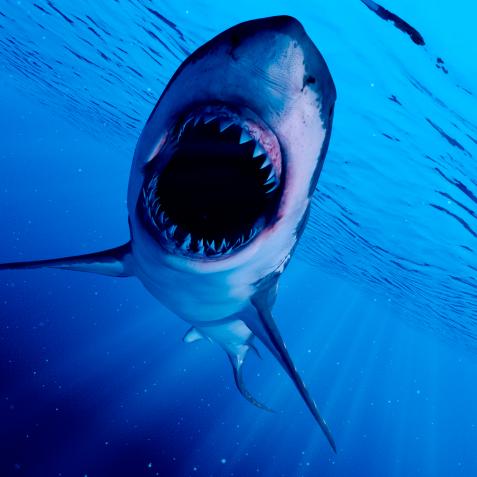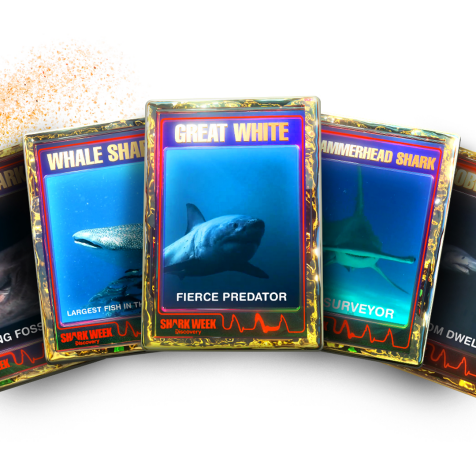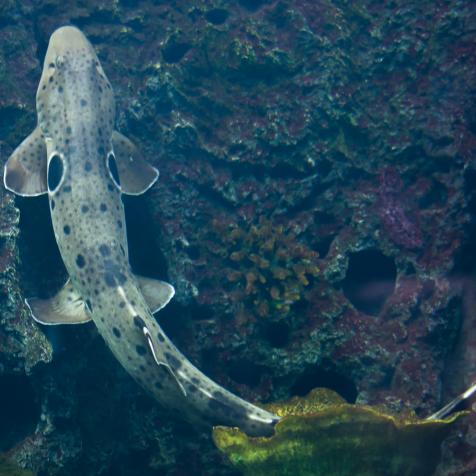
Aaron Bull
Could Sharks Live in Space?

Europa to be specific. Yes, I know it’s a crazy question, but hear me out. This will be fun.
Astronomers around the world are engaged in a massive, decades-long hunt for life outside the Earth. And while much of that hunt is focused on worlds orbiting other stars, there are some very intriguing possibilities right around the corner in our own solar neighborhood.

I’m talking about Europa.
Europa is the second moon of the giant planet Jupiter and is about the size of our own moon (a.k.a. the Moon). At first glance Europa is super-boring: just vast plains of ice covering its surface, with a few cracks here and there.

janiecbros
But underneath that crunchy exterior is a warm, gooey center. As Europa orbits Jupiter, the gravity of that massive planet constantly stretches and squeezes the innards of its moon, warming it up in a process known as tidal heating. This process heats the moon from the inside-out, meaning that Europa is indeed covered in rock-hard water ice, but contains a vast liquid water ocean underneath it.
There’s more liquid water on Europa than there is on the Earth.
Liquid water is the #1 prerequisite for life as we know it (which is all the life we know)--including sharks. But sharks need more than water. They need oxygen.

alexaldo
On Earth, oxygen is generated through photosynthesis and mixed into our oceans through waves at the surface. Europa doesn’t get that, because its oceans are locked in permanent darkness. But Europa has a trick up its sleeve, at least potentially. UV radiation from the sun can strike dust grains on the surface, liberating oxygen molecules than can then – again, potentially – worm their way down into the endlessly-dark oceans.
Water? Check. Oxygen? Check. A shark needs just one more thing to be a happy chomper: food.
The basis for almost all life on Earth is, again, photosynthesis, as plants and algae convert solar energy into chemical energy, which makes its wiggling way up the food chain to creatures like cows, people, and sharks.
Photosynthesis is a hard “no” on Europa, but once again that curious little moon proves resilient. Some life on Earth is based on deep-water ocean vents, where plumes of super-heated chemicals jet into the surrounding water, providing a source of heat and the chemical energy needed to sustain life.
Could Europa have a similar process? We currently don’t know. We do know, however, that the deep interior of Europa is incredibly hot and molten, and at some point that molten core meets the surrounding liquid water ocean. There very well could be deep Europan vents that provide all the nutrients necessary for life to survive, thrive, and maybe even flourish.
In other words, shark food.
There could be an entire complex food web on Europa, swimming in the never-ending night of an ocean locked under a hundred miles of ice, orbiting a giant planet a half billion miles from the sun.
Sharks on Europa? It’s more likely than you think.



















